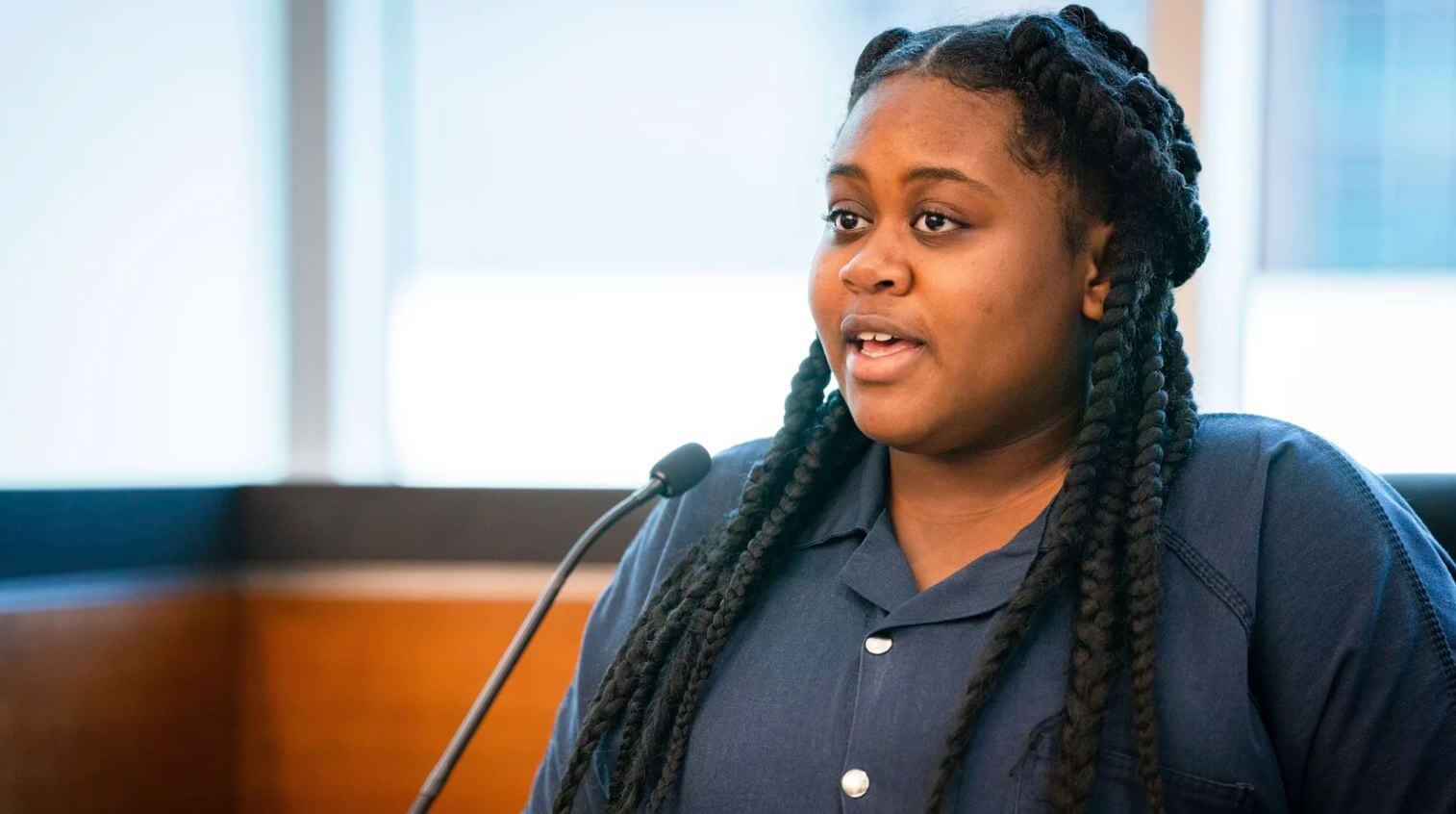“My story can change things” – Pieper Lewis, September 13th 2022
Joint statement regarding the sentencing of Piper Lewis prepared by the Iowa Network Against Human Trafficking and Slavery and Shared Hope International
In sentencing child sex trafficking survivor, Pieper Lewis, on September 13, 2022, Judge David Porter stated, “Ms. Lewis, this is the second chance you asked for. You don't get a third. Do you understand?”
The judge was alluding to his sentencing order that imposed a term of probation in lieu of immediate imprisonment, however the “second chance” he believed he was providing is nevertheless one rooted in punitive responses for trafficking survivors. If the anti-trafficking movement is committed to moving toward truly trauma-informed approaches, “second chances” must not include criminalizing survivors for trauma and offenses committed as a result of trafficking victimization; “second chances” must not include tools of control and punishment that resemble a survivor's past exploitation, including incessant supervision, adherence to strict rules, placement in locked facilities, and debts to earn freedom.
Yet, in providing a “second chance” to Pieper, Judge Porter ordered Pieper to pay her exploiter's family $150,000 in restitution,[1] the court an additional $4,000 for expenses incurred in her prosecution,[2] and, for the next five years, to wear an ankle monitor, remain on probation, and live in a facility managed by the Iowa Department of Corrections. Further, if Pieper violates any term of her probation, the court is authorized to reimpose a 20-year term of imprisonment.
Trafficking another person, raping them, exposing them to abuse after abuse is horrendous. While a person being trafficked is still breathing, and therefore technically alive, their life is no longer their own. Victims of human trafficking are subjected to a level of control that enslaves them fully, mind and body. They are subjected to abuses, assaults, and a commodification that reduces them to a product and shreds the soul.
Prosecutors argued that Brooks was asleep at the time he was stabbed and therefore not an immediate danger to Lewis. Such assertions can only be made by someone entirely disconnected from the intensity of trauma and human trafficking. Brooks had drugged and raped Pieper repeatedly, on more than one occasion, contributing to a pattern of sexual violence inflicted on her, as well as other harm, including homelessness and poverty.
Pieper Lewis, a 15-year-old child at the time of her arrest, has not been treated as such, nor has she been treated as the victim she was and, as she rightfully claimed in court, the survivor she is. Indeed, Pieper powerfully demonstrated her resilience during her sentencing hearing, “Today, my voice will be heard. The story of Pieper Lewis holds power. The trauma of Pieper Lewis carries a ruptured beginning, tormented past and a delayed future. With perseverance, we have the ability to change the direction of our delayed and unknown futures.” But she also spoke to how the criminal justice system had overlooked and ignored her victimization as she was prosecuted for a crime that directly arose from the abuse and trauma she experienced through trafficking, “I wish the events that took place on June 1, 2020 never occurred, but to say there's only one victim to this story is absurd.”
Even when imprisonment is avoided, criminal and juvenile justice responses are inherently punitive and often compound trauma, contribute to cycles of poverty and exploitation, and fail to positively contribute to the survivors' healing. They also cement cultural beliefs and practices that blame victims for their own harm suffered. This is the reason more comprehensive approaches to preventing survivors from being criminalized are at the core of survivor-centered reforms.
As a judge in a state that continues to allow children to be charged with prostitution–conduct that is synonymous with their trafficking victimization–Judge Porter's ruling cemented the victim-blaming beliefs that have undermined efforts to protect rather than punish child sex trafficking victims in Iowa.
Iowa currently joins 23 states that still criminalize children for prostitution, 34 states that still allow children to be charged and prosecuted for other non-violent crimes or trafficking charges that resulted from their trafficking victimization, and 42 states that still do not allow child sex trafficking victims, like Pieper Lewis, to assert a defense to violent felony charges that arose from trafficking victimization. We as a country have a long way to go to recognize, in our laws and within our judicial system, the harm that is caused by continuing to treat victims of trafficking as criminals while ignoring the impact of their victimization.
Together, The Genesis Project, Shared Hope International, and the Iowa Network Against Human Trafficking and Slavery seek just responses for trafficking survivors, including Pieper. We strongly urge dramatic change in how survivors of trafficking are treated in Iowa and beyond. We invite you to join us and help shift the status quo to one that protects survivors rather than blaming and punishing them for their own victimization.
This “Eyes on Trafficking” story is reprinted from its original online location.
 ABOUT PBJ LEARNING
ABOUT PBJ LEARNING
PBJ Learning is a leading provider of online human trafficking training, focusing on awareness and prevention education. Their interactive Human Trafficking Essentials online course is used worldwide to educate professionals and individuals how to recognize human trafficking and how to respond to potential victims. Learn on any web browser (even your mobile phone) at any time.
More stories like this can be found in your PBJ Learning Knowledge Vault.
EYES ON TRAFFICKING
This “Eyes on Trafficking” story is reprinted from its original online location.
ABOUT PBJ LEARNING
PBJ Learning is a leading provider of online human trafficking training, focusing on awareness and prevention education. Their interactive Human Trafficking Essentials online course is used worldwide to educate professionals and individuals how to recognize human trafficking and how to respond to potential victims. Learn on any web browser (even your mobile phone) at any time.
More stories like this can be found in your PBJ Learning Knowledge Vault.

